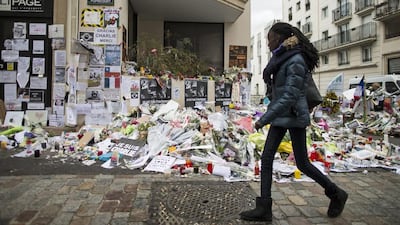The perpetrators of the horror at Charlie Hebdo were not devout Muslims outraged by insults directed at their faith. They were not motivated by religious piety, nor did they seek to deal a blow to “freedom of expression”. Rather they were crude political actors seeking to create the greatest possible effect through acts of terror. In other words, they were murderers.
I believe in freedom of expression, but with freedom comes responsibility. Pope Francis got it right when he noted: “You cannot provoke. You cannot insult the faith of others. You cannot make fun of the faith of others”. At the same time, I am horrified by the murders. As the Pope added: “One cannot offend, make war, kill in the name of one’s religion – that is in the name of God. To kill in the name of God is an aberration”.
The murders at the Paris kosher market were even more despicable, as they were motivated by the crudest form of anti-Semitism.
What should be clear by now is that France has a problem. Most Muslims in France come from former French colonies, where France’s behaviour was often brutal and hurtful. During the colonial period, the Algerians were denied their identity, their language and their rights. Two generations later, these Algerians came to France seeking jobs and opportunity, but found themselves trapped in poverty.
It is important to understand this context to grasp the humiliation felt by many French Muslims on seeing their religion denigrated by the country’s elite. This, of course, in no way excuses the murders at Charlie Hebdo.
France has another problem: it welcomes immigrants, but often does not respect them or absorb them. As Barack Obama pointed out at a press conference this week, immigrants come to the US and within a generation become American and make their way up the ladder of social and economic mobility. This happens for two reasons.
First, the idea of “being American” is not about an ethnicity-based identity. It is a concept that continues to change. Immigrants become American and in the process they expand the very definition of what it means to be an American. After all, what are American music, cuisine, fashion and humour? They are an amalgam of all of the cultures that have come to be absorbed in the evolving American identity.
The second reason is tragic and that is that when immigrants come to America, they do not start at the bottom precisely because America has a pre-existing underclass of blacks and Hispanics, many of whom have been locked in poverty for generations. This is not the case in Europe, where immigrants who are not absorbed into a culture that changes with them have become the underclass. Arabs have been in France for generations, as have Turks and Kurds in Germany and South Asians in the UK. They are told, “become like us if you want to be a part of us”. Yet immigrants can never “be like them” because French, German or British identities are based on ethnicity.
In the days that followed the Paris murders, there were a number of articles that called on Muslims to “re-examine their religion” and its “penchant for violence and intolerance”. Even though a few of these commentaries may have been well-meaning, they were wrong and evidence of a deeper prejudice against Islam.
In the past century, Europe was the scene of two bloody world wars that claimed tens of millions of lives. The continent gave birth to fascism in Spain, Italy and Germany, and to communism and violent anarchism. It also saw the expansion of Europe’s colonial enterprise in Africa, Asia and the Arab world though violence.
During all that time and later, did we ask Christianity to re-examine itself? Did we ever suggest that this mass rampage that engulfed a continent had its roots in a religion that glorified conquest and blessed oppression and racism?
And when George W Bush told us that God urged him to go to Iraq, when clergy blessed the war effort, when horrors were perpetrated on prisoners of Abu Ghraib, when tens of thousands of Iraqis and Americans suffered torture or died in a war based on a lie, have Christians been called upon to re-examine the principles of their faith?
The problem does not lie in religion, but in those who abuse it for their evil ends. The source of the current violence is to be found not in Islam, but in the conditions that exist in countries from which those who abuse Islam come – discrimination, humiliation, deprivation and oppression. Such conditions lead to antisocial behaviour.
However, this doesn’t absolve those who respond to such conditions with violence. But our condemnation should be precise.
James Zogby is the president of the Arab American Institute
On Twitter: @aaiusa


